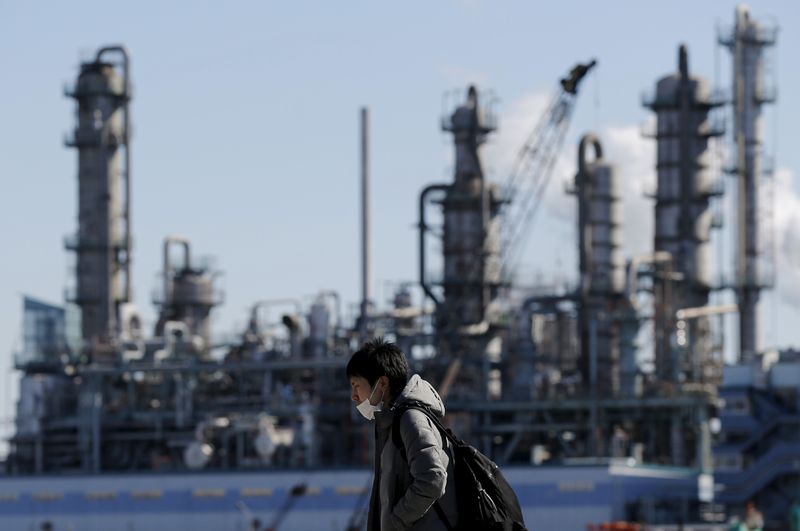By Tetsushi Kajimoto and Leika Kihara
TOKYO (Reuters) - Every March, management of major Japanese firms meet with unions for wage talks across industries that set the tone for employees' pay in the new fiscal year.
The precedent set at the "shunto" spring wage talks also influences wages at smaller firms that employ seven out of 10 Japanese workers and supply big manufacturers.
The outcome will have a huge influence on how soon the Bank of Japan (BOJ) could end ultra-low interest rates, as steady wage hikes are crucial to kick-starting domestic demand and keeping inflation sustainably around its 2% target.
Here is an overview of the wage negotiations: and why they are important.
HOW IS PAY DECIDED IN JAPAN?
In around March of each year, companies and union negotiate pay for the fiscal year beginning in April of that year.
The practice, known as "shunto," began in 1956 when Japan's postwar economy was booming. Unions demanded improvement in wages and job conditions by resorting to strikes in big cities.
The talks peaked in 1974 with a record 33% rise in pay. The increases fell below 3% after Japan slipped into deflation and prolonged economic stagnation in the 1990s.
Unionists have long since turned cooperative, rather than combative, working with management on the shared objective of job security rather than higher pay.
The focus on job security, rather than higher pay, is blamed for keeping Japan's wage growth stagnant.
WHY ARE COMPANIES UNDER PRESSURE?
Former Prime Minister Shinzo Abe's "Abenomics" stimulus policies helped boost corporate profits, but failed to prod firms to trickle down the benefits to households via wage hikes.
Incumbent premier Fumio Kishida wants to change this under his flagship "new capitalism" policies that seek to distribute wealth more broadly among the population through higher pay.
He has called on companies to achieve wage hikes that exceed the pace of inflation to help households weather rising living costs brought by a spike in fuel and raw material prices.
Aside from such political pressure, companies also need to offer higher pay to retain talent and hire young workers as Japan's rapidly aging population intensifies a labour crunch.
WHAT WILL BE THE OUTCOME OF THE WAGE TALKS?
Some of Japan's biggest firms have already promised large pay hikes including auto giant Toyota and fashion brand Uniqlo parent Fast Retailing.
Analysts expect big firms to offer wage hikes of around 3% in wage talks, which would be the fastest pace of increase since 1997 when Japan was on the cusp of deflation. That would follow a 2.2% increase in 2022, which was the first hike in four years.
Such hikes would meet Kishida's calls for companies to offer annual wage hikes of 3% but miss an ambitious goal of a 5% pay increase demanded by Japan's labour umbrella Rengo.
WILL WAGES KEEP RISING?
The key for the economy will be how much companies will raise base pay, which are across-the-board and permanent payments that provide the basis of future allowances like retirement and pensions.
Wary of increasing fixed costs, many Japanese firms long compensated employees with one-off bonus payments in good times rather than raising base pay.
As Japan slid into deflation in the late 1990s, management and unionists agreed to no base-pay hikes for more than a decade through 2013.

Kishida has approached Japan's union umbrella Rengo in prodding firms to hike base pay. Rengo is demanding a 5% pay hike that includes a base pay rise of 3%, which many analysts see as too ambitious for many firms to swallow.
Of the 2.85% wage hike projected by economists in a January poll, 1.08% is comprised by base pay hikes and another 1.78% increase in additional salary based on seniority.